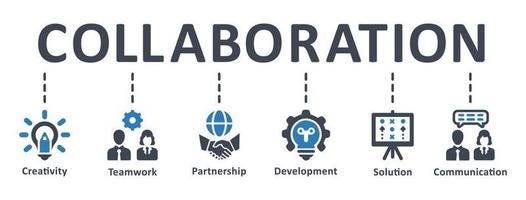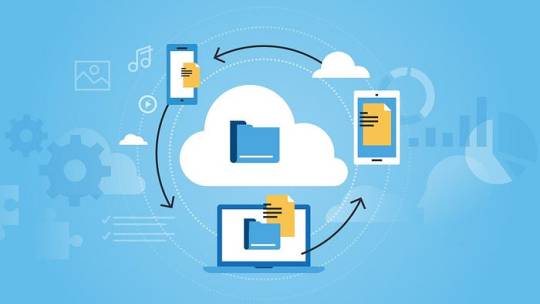#Google Workspace Enterprise Storage
Explore tagged Tumblr posts
Text
Dropbox Is Dropping Unlimited Storage, Blames Crypto Miners
Dropbox is no longer offering new customers unlimited cloud storage. The company says crypto miners and other dastardly individuals pooled or resold storage space. Now, none of us can have nice things. This Giant Company Owns Almost Every Dating App In a blog post, the company said the unlimited plan was originally geared for companies working in a shared space. Dropbox complained that folks…

View On WordPress
#Chia#Cloud applications#Cloud computing#Cloud storage#Criticism of Dropbox#Cryptocurrency#DROPBOX#File sharing services#Gizmodo#Google#Google Drive#Google Workspace#Google Workspace Enterprise Storage#Internet#Online backup services#Proof of space#Technology#Universal Windows Platform apps
0 notes
Text
Top 10 Tools for Digital Transformation Success

Digital transformation specialist relies on various tools to improve efficiency, automate workflows, and enhance customer experiences. Here are the top 10 tools that drive digital transformation success:
1. Cloud Computing Platforms
Tools: AWS, Microsoft Azure, Google Cloud
Enable scalability, security, and remote accessibility.
Power data storage, machine learning, and enterprise applications.
2. Customer Relationship Management (CRM)
Tools: Salesforce, HubSpot, Microsoft Dynamics 365
Centralizes customer data for improved sales, marketing, and support.
Uses AI-driven insights to enhance customer engagement.
3. Enterprise Resource Planning (ERP)
Tools: SAP S/4HANA, Oracle NetSuite, Microsoft Dynamics 365 ERP
Integrates finance, HR, supply chain, and operations into a unified system.
Enhances decision-making with real-time analytics.
4. Robotic Process Automation (RPA)
Tools: UiPath, Automation Anywhere, Blue Prism
Automates repetitive tasks, reducing manual effort and errors.
Improves efficiency in finance, HR, and customer service processes.
5. Business Intelligence & Data Analytics
Tools: Power BI, Tableau, Google Looker
Visualizes business data for actionable insights.
Uses AI-powered analytics for predictive decision-making.
6. Cybersecurity & Compliance
Tools: Palo Alto Networks, Cisco Security, Okta
Protects digital assets from cyber threats and ensures compliance.
Implements multi-factor authentication (MFA) and zero-trust security models.
7. Collaboration & Productivity
Tools: Microsoft 365, Google Workspace, Slack, Zoom
Enhances remote work and real-time collaboration.
Integrates cloud storage, messaging, and video conferencing.
8. Artificial Intelligence & Machine Learning
Tools: IBM Watson, Google Vertex AI, OpenAI API
Automates decision-making, enhances customer service, and drives predictive analytics.
Personalizes customer experiences through AI-driven insights.
9. Low-Code/No-Code Development
Tools: Mendix, OutSystems, Microsoft Power Apps
Enables non-developers to create applications quickly.
Speeds up digital transformation by reducing dependency on IT teams.
10. Internet of Things (IoT) & Edge Computing
Tools: AWS IoT, Google Cloud IoT, PTC ThingWorx
Connects devices and sensors for real-time monitoring.
Optimizes supply chain, manufacturing, and smart infrastructure.
How This Relates to Operations Excellence
Since you are in Operations Excellence Management, tools like RPA, ERP, and Business Intelligence can significantly enhance process efficiency and automation in your field. Implementing these can help you drive cost reduction, productivity gains, and data-driven decision-making in operations.
Would you like recommendations on specific tools that fit your industry or current role?
0 notes
Text
Email Hosting for Enterprises in UAE: What to Consider Before Choosing a Provider
In today’s digital landscape, enterprises rely heavily on professional email services for seamless communication. Choosing the right email hosting provider in UAE is crucial for ensuring reliability, security, and efficiency in business operations. With multiple options available, businesses must carefully assess their needs and compare various email hosting services UAE before making a decision. This guide will walk you through the key factors to consider before selecting an email hosting UAE provider.

Understanding Email Hosting
What is Email Hosting?
Email hosting is a service that allows businesses to manage their email servers and domains professionally. Unlike free email services, enterprise email hosting provides enhanced security, larger storage, and custom domain names that establish brand credibility.
Types of Email Hosting
Shared Email Hosting – A cost-effective option where multiple users share server resources.
Dedicated Email Hosting – Offers exclusive server resources for businesses with high email traffic.
Cloud-Based Email Hosting – Provides flexibility, scalability, and remote access capabilities.
On-Premise Email Hosting – Best for businesses that require full control over their email infrastructure.
Key Factors to Consider When Choosing an Email Hosting Provider
1. Reliability and Uptime Guarantee
Enterprises need an email hosting service with high uptime guarantees to avoid disruptions in communication. Look for providers offering at least 99.9% uptime backed by Service Level Agreements (SLAs).
2. Security Features
Email security is crucial for protecting sensitive business information. Ensure that the provider offers:
End-to-end encryption to secure data transmission.
Spam and malware protection to prevent malicious attacks.
Multi-factor authentication (MFA) for enhanced security.
Data loss prevention (DLP) to safeguard important emails.
3. Storage and Scalability
Businesses generate a high volume of emails daily, requiring ample storage space. Evaluate:
The amount of storage per user.
Scalability options to accommodate business growth.
Cloud storage integration for backup and archiving.
4. Custom Domain Support
A professional email address (e.g., [email protected]) enhances credibility. Ensure the provider supports custom domain integration for branding purposes.
5. Compliance and Data Privacy
UAE businesses must comply with data protection laws and industry regulations. Choose a provider that:
Adheres to UAE data privacy laws.
Offers GDPR and ISO 27001 compliance for international standards.
Provides data residency options to store emails in secure UAE-based data centers.
6. Integration with Business Tools
Seamless integration with CRM software, productivity suites, and collaboration tools enhances workflow efficiency. Check if the email hosting service is compatible with:
Microsoft 365 and Google Workspace.
Project management and communication tools.
Third-party applications for automation and analytics.
7. Customer Support and Technical Assistance
Uninterrupted business operations require responsive technical support. Ensure the provider offers:
24/7 customer support via phone, email, and chat.
Localized UAE-based support for quick assistance.
Comprehensive knowledge base and tutorials for troubleshooting.
8. Email Migration Services
If switching from another email host, ensure smooth email migration services are available. The provider should offer:
Seamless data transfer without downtime.
Assistance with domain setup and DNS configuration.
Automated migration tools to streamline the transition.
9. Backup and Disaster Recovery
Data loss can be catastrophic for enterprises. Ensure the provider offers:
Automated daily backups with easy recovery options.
Disaster recovery plans for emergency situations.
Redundant data storage for enhanced reliability.
10. Cost and Pricing Structure
Cost-effectiveness is a key consideration when selecting an email hosting UAE provider. Evaluate:
Subscription models (monthly or annual plans).
The cost of additional features like storage expansion and security enhancements.
Transparent pricing without hidden charges.
Benefits of Enterprise Email Hosting in UAE
Enhanced Professionalism
Using a business email domain enhances brand credibility and professionalism.
Improved Security
Enterprise email hosting provides advanced encryption, anti-spam, and malware protection to safeguard business data.
Increased Productivity
Integration with business tools and collaboration platforms enhances team communication and efficiency.
Better Compliance and Data Control
Email hosting providers ensure compliance with local and international data regulations, providing businesses with peace of mind.
Scalability and Flexibility
Cloud-based email hosting allows enterprises to scale resources as their business grows without significant infrastructure investments.
Conclusion
Selecting the right email hosting providers in UAE requires a thorough evaluation of security, reliability, scalability, and compliance features. Enterprises should prioritize uptime guarantees, integration capabilities, and responsive customer support when making a decision. By considering these factors, businesses can ensure secure, efficient, and seamless communication through a professional email hosting UAE service.
0 notes
Text
Google Workspace Enterprise Essentials in India | Wesetup India
Discover Google Workspace Essentials! Get powerful collaboration tools, secure cloud storage, and seamless communication. Try it now for a productive boost!
0 notes
Text
Tailored IT Solutions for Seamless Business Operations – WiseGTech
Powering Business Success with Custom IT Solutions
In today's fast-evolving digital world, businesses require tailored IT solutions to enhance productivity, security, and growth. At WiseGTech, we specialize in customized IT services that align with your business objectives, ensuring seamless operations, robust security, and long-term scalability.
With our expert IT consulting, cloud solutions, managed IT services, cybersecurity, and digital transformation strategies, we help businesses streamline operations, optimize costs, and enhance performance.

Why Choose WiseGTech for Your IT Needs?
✔ Custom IT Solutions – Designed specifically for your industry and business model.
✔ Seamless Cloud Integration – Scalable, secure, and optimized cloud services.
✔ 24/7 IT Support & Management – Ensuring minimal downtime and maximum efficiency.
✔ Advanced Cybersecurity Solutions – Protecting your data, network, and business assets.
✔ AI & Automation for Business Growth – Boosting efficiency through smart IT automation.
Comprehensive IT Solutions for Every Business Need
1. IT Strategy & Business Consulting
• Technology Roadmap Development – Align IT with your business goals and digital strategy.
• IT Infrastructure Audit & Optimization – Identifying areas for cost savings and performance enhancement.
• Digital Transformation Consulting – Implementing modern AI-driven and cloud-based solutions.
2. Managed IT Services & 24/7 IT Support
• Remote & On-Site IT Support – Ensuring smooth operations without disruptions.
• IT Helpdesk & Troubleshooting – Fast resolution of technical issues.
• Proactive IT Monitoring & Maintenance – Preventing downtime and optimizing performance.
3. Cloud Solutions & Digital Workspaces
• Hybrid & Multi-Cloud Management – Secure, scalable AWS, Azure, and Google Cloud solutions.
• Cloud Migration & Integration – Transitioning applications, storage, and databases seamlessly.
• Cloud Backup & Disaster Recovery – Ensuring business continuity and data protection.
4. IT Security & Compliance Solutions
• Advanced Cybersecurity Strategies – Protecting business networks from cyber threats.
• Regulatory Compliance & Risk Management – Meeting GDPR, HIPAA, and ISO 27001 standards.
• Data Encryption & Access Control – Enhancing security for critical business data.
5. AI, Automation & Digital Optimization
• Business Process Automation (BPA) – Reducing manual work and improving efficiency.
• AI-Powered IT Solutions – Implementing machine learning and data analytics for growth.
• Robotic Process Automation (RPA) – Enhancing workflow efficiency and cost-effectiveness.
6. IT Infrastructure & Enterprise Networking
• Secure Networking & Connectivity Solutions – Reliable enterprise networking services.
• IT Asset & Software Management – Streamlining hardware and software operations.
• VoIP & Unified Communications – Enhancing team collaboration and remote work efficiency.
7. Business Continuity & IT Disaster Recovery
• Cloud Backup & Data Protection – Preventing data loss with automated secure backups.
• IT Disaster Recovery Planning – Minimizing downtime during cyberattacks or system failures.
• Resilient IT Architecture – Ensuring uninterrupted business operations.
Industries We Serve
🔹 Healthcare IT Solutions – Secure HIPAA-compliant systems for patient data management.
🔹 Financial & Banking IT Services – Risk management, fraud prevention, and secure transactions.
🔹 Retail & E-commerce IT Support – Enhancing online security, inventory management, and customer experience.
🔹 Manufacturing IT Solutions – Smart automation, IoT integration, and cloud-based logistics.
🔹 Legal & Compliance IT Services – Secure case management and confidential data protection.
WiseGTech: Your Trusted IT Partner for Seamless Operations
✔ Custom IT Solutions – Tailored for startups, SMBs, and large enterprises.
✔ Proactive IT Support – 24/7 monitoring and expert troubleshooting.
✔ Future-Ready Technology �� Cloud computing, AI, and smart IT solutions.
✔ Cost-Effective IT Management – Maximizing ROI without unnecessary overhead costs.
0 notes
Text
How Reliable IT Solutions Drive Efficiency and Productivity for Businesses
In today’s fast-paced, technology-driven world, businesses face increasing pressure to stay competitive, optimize their operations, and deliver exceptional customer experiences. Whether you're a startup or an established enterprise, the key to achieving these goals lies in how effectively your company leverages technology. Reliable IT solutions play a crucial role in driving business efficiency and productivity, enabling organizations to streamline processes, enhance collaboration, and make better-informed decisions.
In this blog, we’ll explore how reliable IT solutions are essential for modern businesses and the various ways they can improve efficiency and productivity.
1. Automation of Routine Tasks
One of the most significant ways reliable IT solutions contribute to business efficiency is through the automation of routine tasks. Repetitive, time-consuming tasks, such as data entry, scheduling, invoicing, and inventory management, can all be automated with the right software solutions.
For example, enterprise resource planning (ERP) systems or customer relationship management (CRM) tools can automate the management of customer data, sales pipelines, and order processing. By automating these processes, businesses reduce the chances of human error, save valuable time, and free up employees to focus on higher-value tasks that require critical thinking and creativity.
Moreover, automating routine tasks ensures consistency and speed, leading to fewer delays and bottlenecks, resulting in overall productivity improvements across the organization.
2. Streamlined Communication and Collaboration
In a business environment where remote work, hybrid teams, and international collaborations have become the norm, communication and collaboration are paramount. Reliable IT solutions, such as cloud-based collaboration tools, video conferencing software, and instant messaging platforms, make it easier for teams to communicate, share documents, and collaborate in real time, no matter where they are located.
For instance, tools like Microsoft Teams, Slack, or Google Workspace enable teams to stay connected, share project files, and collaborate on documents without the need for constant email exchanges. This reduces friction, improves information flow, and speeds up decision-making processes.
Furthermore, collaboration tools with integrated task management features, such as Asana or Trello, allow teams to assign tasks, set deadlines, and track progress. This leads to better project management and ensures that everyone is aligned with the organization’s goals, reducing the chances of miscommunication and missed deadlines.

3. Enhanced Data Management and Analytics
Data is a business's most valuable asset, but only if it is managed properly. Reliable IT solutions enable businesses to store, organize, and analyze vast amounts of data efficiently. Implementing cloud storage solutions and big data analytics platforms gives businesses access to secure, scalable, and cost-effective data management systems.
With these solutions in place, companies can collect and analyze real-time data to identify trends, improve decision-making, and drive strategic initiatives. For example, using analytics tools like Google Analytics, Power BI, or Tableau, businesses can track performance metrics, customer behavior, and market trends, allowing them to optimize their operations.
By analyzing data patterns, companies can identify inefficiencies and areas for improvement, whether it's in supply chain management, customer service, or marketing campaigns. This data-driven approach not only helps businesses make informed decisions but also drives long-term growth and competitive advantage.
4. Improved Customer Service and Support
In today’s business environment, exceptional customer service is a critical factor for success. Reliable IT solutions can significantly enhance the customer experience, leading to higher satisfaction and retention rates.
For instance, customer support software like Zendesk or Freshdesk allows businesses to manage and respond to customer queries efficiently. These platforms provide tools for ticket management, live chat, and automated responses, enabling faster resolution times and improving the overall customer experience.
Additionally, chatbots powered by AI can automate responses to frequently asked questions, provide instant support, and even guide customers through self-service options. This not only improves customer satisfaction but also helps businesses reduce the workload on support teams, enabling them to focus on more complex issues.
5. Scalability and Flexibility
As businesses grow, their IT needs evolve. One of the key benefits of reliable IT solutions is that they are often designed with scalability in mind. This means that as your business expands, your technology infrastructure can grow with it without requiring a complete overhaul.
For example, cloud computing solutions provide scalable infrastructure where businesses can easily add or remove resources, such as storage or processing power, based on their current needs. This flexibility ensures that businesses only pay for what they use, reducing unnecessary costs while providing the capacity to handle higher volumes of data or customers.
Scalable IT solutions also make it easier to integrate new software tools or technologies as your business diversifies or enters new markets. This adaptability ensures that your business remains agile and can respond quickly to changing market conditions, keeping you ahead of the competition.
6. Security and Risk Management
Security is a top priority for any business, especially as cyber threats continue to evolve. A reliable IT infrastructure includes robust security measures that protect sensitive data, prevent unauthorized access, and ensure compliance with industry regulations.
For example, firewalls, encryption, multi-factor authentication (MFA), and regular security audits can help safeguard your systems from potential breaches. Reliable IT solutions ensure that your business remains secure, minimizing the risks of data loss, financial fraud, or reputational damage.
Moreover, these solutions can help businesses stay compliant with industry standards and government regulations, such as GDPR, HIPAA, or PCI DSS, which can be particularly important in industries like healthcare, finance, and e-commerce.
A strong security framework builds trust with your customers, partners, and stakeholders, knowing that their data is protected. This ultimately enhances your reputation and minimizes business risks, leading to smoother operations and increased productivity.
7. Reduced IT Downtime and Improved Reliability
A reliable IT infrastructure is one that operates seamlessly and with minimal downtime. Unplanned IT outages or disruptions can have a significant negative impact on business operations, leading to lost revenue, customer dissatisfaction, and damage to your brand.
Investing in managed IT services and cloud solutions ensures that your systems are monitored 24/7, and proactive measures are taken to address potential issues before they become problems. For example, cloud-based solutions are typically more reliable than on-premises systems because they come with built-in redundancies, automatic updates, and failover mechanisms.
This constant monitoring and quick response times minimize IT downtime and keep your operations running smoothly, ensuring that employees can work without interruptions and that customers can access your services without delays.
8. Cost Efficiency and Resource Optimization
Reliable IT solutions contribute to cost savings in multiple ways. By automating processes, improving data management, and reducing the need for manual labor, businesses can save significant amounts of time and money. Moreover, cloud computing eliminates the need for expensive on-premises hardware and infrastructure, reducing maintenance costs.
Reliable IT systems also enable businesses to optimize their resources. For example, through cloud-based collaboration tools and remote work solutions, companies can reduce the need for physical office spaces, allowing employees to work remotely and cut down on overhead costs.
By focusing on IT solutions that drive efficiency, businesses can do more with fewer resources, improving their bottom line while still providing top-notch services and products to customers.
9. Fostering Innovation
Lastly, reliable IT solutions foster innovation. With a solid technological foundation, businesses are free to experiment with new ideas and technologies. Whether it’s adopting artificial intelligence (AI), machine learning (ML), or blockchain, reliable IT systems make it easier to integrate emerging technologies that can unlock new revenue streams, optimize operations, and improve customer experiences.
For instance, AI-driven solutions can automate complex tasks, analyze large datasets, and even make predictive recommendations, which can open up new business opportunities and increase efficiency in existing processes.
Conclusion
In an increasingly digital world, businesses must rely on reliable IT solutions to drive efficiency, productivity, and long-term success. From automating routine tasks to enhancing communication, improving data management, and bolstering security, these solutions are essential for staying competitive and agile. By investing in robust IT infrastructure, companies can streamline their operations, reduce costs, and create an environment conducive to innovation and growth.
In the end, businesses that leverage technology effectively are better positioned to meet customer needs, expand their reach, and achieve sustained success in today’s fast-evolving market.
0 notes
Text

📈 Trend Alert: Enterprise Migration in 2025 Did you know? Over 70% of enterprises plan to shift to multi-cloud storage solutions. Stay ahead with Exinent’s cutting-edge migration services for: Google Workspace SharePoint Online Dropbox
0 notes
Text
Remote Work Essentials: Tools and Tips for Success

With the onslaught of remote work, days are gone when companies required their workers to come to their offices daily. While working from home may not always be the most helpful and productive way to work, it offers much flexibility for efficient collaboration and effective task management. Working remotely requires the right tools and strategies that one must implement in order to succeed. In this blog, we will explore the must-have remote work tools, along with some actionable tips for getting things done.The Importance of Remote Work Preparedness
The Importance of Remote Work Preparedness
Remote work isn’t merely about logging in from home; it’s about creating a functional, productive, and collaborative workspace, no matter where you are.
Having proper tools in place enables seamless communication, task management, and data security. Equally important, having the right habits and best practices allows you to focus, be efficient, and partner with your team.

Remote Work Toolkit: Essential Tools for Success
Let’s dive into the key categories of tools you need to stay organized, productive, and connected while working remotely.
1. Project Management Tools

Remote teams thrive on clear structure and collaboration, making it possible to manage tasks and projects using collaborative tools. The project management tool is the heart of the team, where work can be assigned to someone, the status tracked, deadlines set, and communication facilitated.
Here are some top suggestions:
TeamCamp: A modern project management tool for remote teams, enabling task tracking, collaboration, and goal setting, direct from our blog on Best Project Management Tools for Remote Teams.
Trello: It is the Kanban board-based visual task management tool, perfect for organizing workflow.
ClickUp: A feature-rich platform that brings task tracking, team collaboration, and time management into one place
Asana: Great for project planning, tracking individual contributions, and ensuring deadlines are met.
2. Communication and Collaboration Tools

Strong communication is the cornerstone of remote work success. When in-person discussions are off the table, virtual communication tools step in to bridge the gap.
Popular options include:
Slack: Offers instant messaging, file sharing, and app integrations to keep teams connected.
Zoom: Ideal for video conferencing, webinars, and team meetings.
Microsoft Teams: A versatile communication tool combining chat, video calls, and Office 365 integrations.
Google Workspace (Google Meet, Chat, etc.): Provides seamless collaboration across Gmail, Docs, and Meet.
3. Time Management and Productivity Tools

Working from home comes with its fair share of distractions. Time management tools can help you focus, stay organized, and make the most of your day.
Top time management tools include:
Toggl Track: Helps you monitor how much time you spend on tasks.
Focus@Will: A productivity app that combines neuroscience and music to improve focus.
RescueTime: Tracks your daily activities to provide insights into how you spend your time.
Clockify: A free time-tracking app that helps you keep tabs on billable hours.
4. File Storage and Sharing Tools

In a remote setup, sharing and storing documents securely is crucial for smooth workflows. Cloud storage solutions make it easy to access files anytime, anywhere.
Some reliable options include:
Google Drive: Offers free storage and real-time collaboration on documents.
Dropbox: A cloud storage platform with file syncing and sharing capabilities.
OneDrive: Microsoft’s cloud solution that integrates with Office applications.
Box: A secure option for file sharing and collaboration, often used by enterprises.
5. Cybersecurity and Privacy Tools

When working remotely, safeguarding sensitive data and ensuring secure connections is critical. Cybersecurity tools help protect your devices and online activities from potential threats.
Key tools include:
VPNs (Virtual Private Networks): Services like NordVPN or ExpressVPN encrypt your internet connection, protecting your data.
Password Managers: Tools like LastPass or 1Password help manage secure credentials for all your accounts.
Antivirus Software: Options like Bitdefender or Kaspersky ensure your devices are protected from malware.
Two-Factor Authentication (2FA): Many platforms, including Google and Microsoft, offer built-in 2FA options for added security.
6. Wellness and Focus Tools

Burnout is a common challenge in remote work. Wellness and focus tools help you maintain mental and physical well-being while staying productive.
Examples include:
Headspace or Calm: Meditation apps to manage stress and enhance focus.
Stretchly: A tool that reminds you to take regular breaks during long work hours.
Habitica: A gamified app to help you build better habits and stay motivated.
Tips for Thriving in Remote Work
Having the right tools is half the battle — developing productive habits and a balanced routine is equally important. Here are some practical tips for remote work success:
1. Set Clear Boundaries
Define your working hours and communicate them with your team and family. This helps prevent overwork and ensures time for personal life.
2. Create a Dedicated Workspace
Set up a quiet and distraction-free area to work. A proper desk and ergonomic chair can improve posture and productivity.
3. Leverage Automation
Use automation tools like Zapier to integrate apps and reduce repetitive tasks, freeing up more time for critical work.
4. Overcommunicate
In remote work, it’s better to communicate too much than too little. Provide frequent updates on tasks, ask questions, and keep the team in the loop.
5. Take Regular Breaks
Follow the Pomodoro Technique or simply take short breaks to recharge. Stretch, hydrate, or step outside for fresh air.
6. Upskill Yourself
Use online platforms like Coursera or LinkedIn Learning to develop new skills relevant to your job. Remote work often requires tech-savvy professionals.
Frequently Asked Questions (FAQs)
1. What are the most important tools for remote work?
Essential tools include project management platforms like TeamCamp or Trello, communication tools like Slack or Zoom, and file-sharing solutions like Google Drive or Dropbox.
2. How can I stay motivated while working remotely?
Set daily goals, use productivity tools, and maintain a dedicated workspace. Also, ensure regular breaks and focus on self-care to prevent burnout.
3. How do I improve collaboration in remote teams?
Use tools like Slack for communication, Zoom for meetings, and project management software like Asana or ClickUp to ensure clarity and teamwork.
4. How do I maintain work-life balance in a remote setup?
Define clear working hours, create a separate workspace, and make time for hobbies, family, and relaxation.
5. How do I ensure data security while working remotely?
Use VPNs, enable two-factor authentication, and use antivirus software to protect your devices. Store files securely on trusted cloud platforms.
Author detail:
by Pratham Naik ( Project Manager , Content writer )
#project management#remote work#remote teams#agile project management#project management tool for remote team#task management#team management#project management software
1 note
·
View note
Text
How to Choose the Best Cloud Solutions Provider for Your Business
In in recent times’s digital generation, agencies of all sizes are turning to cloud solutions to optimize operations, decorate flexibility, and decrease charges. Choosing the right cloud answers provider is a vital decision that can appreciably impact your commercial enterprise agency primary overall overall performance and growth. With such a selection of companies available, locating the excellent one calls for cautious interest of different factors. This guide will assist you're making an informed choice on your industrial company.
1. Understand Your Business Needs
Before exploring cloud provider companies, examine your commercial enterprise necessities. Consider the subsequent:
What unique troubles do you need the cloud to treatment?
Do you need cloud garage, computing strength, or software internet website hosting?
What degree of scalability and flexibility does your industrial company call for?
Identifying your needs will help you align with a cloud solutions provider that offers the right offerings.

2. Check for Service Offerings
Not all groups provide the identical shape of cloud solutions. Some recognition on Infrastructure-as-a-Service (IaaS), while others offer Platform-as-a-Service (PaaS) or Software-as-a-Service (SaaS). For instance:
If you want virtual machines and storage, search for IaaS corporations like AWS or Microsoft Azure.
If you require improvement equipment, circulate for PaaS providers.
For hosted software software like CRM or email, SaaS vendors like Google Workspace or Salesforce may be extremely good.
3. Assess Security Measures
Security is one of the most important factors at the same time as choosing a cloud answers provider. Your provider have to provide strong safety protocols to protect your sensitive records. Look for:
Encryption for facts in transit and at relaxation.
Compliance with organization requirements like GDPR, HIPAA, or ISO 27001.
Multi-issue authentication and normal protection audits.
Ask the agency how they cope with breaches or safety incidents to ensure your statistics stays safe.
4. Evaluate Reliability and Performance
Your commercial enterprise corporation relies upon at the reliability of your cloud business enterprise. Downtime can motive out of area productivity and income. Check the organisation's Service Level Agreement (SLA) for uptime ensures. The company fashionable is ninety nine.9% uptime, but the better, the higher.
Also, look at their universal performance metrics, along with records switch speeds and server reaction times, to make certain seamless operations.
5. Scalability and Flexibility
As your business business enterprise grows, your cloud goals will exchange. Choose a cloud solutions company which can resultseasily scale their offerings to suit your increase.
Look for pay-as-you-circulate models or bendy subscription plans.
Ensure the provider can deal with unexpected web site traffic spikes or stepped forward call for without compromising regular normal performance.
6. Cost Transparency
Cost is a major thing in selecting a cloud company. While cloud services may be charge-effective, hidden fees can fast add up. Compare pricing structures of various organizations and look for:
Transparent billing models.
No unexpected expenses for statistics retrieval or scaling.
A smooth knowledge of what is covered in the pricing.
Remember, the cheapest company isn’t continuously the top notch. Value for coins want to be your attention.
7. Customer Support
Reliable customer service is critical at the same time as you face technical problems or require assist. Assess the enterprise’s guide alternatives:
Do they provide 24/7 assist through more than one channels like chat, e mail, and contact?
Are there committed account managers for large clients?
What is their commonplace reaction and resolution time?
Reading purchaser opinions and testimonials will will permit you to gauge the agency's manual tremendous.
8. Data Backup and Recovery Options
Data loss may be catastrophic for any organisation. Ensure the provider has dependable backup and disaster healing options. Key additives to keep in mind embody:
Automatic backups at everyday durations.
Easy healing procedures.
A nicely-documented catastrophe recuperation plan to reduce downtime.
9. Vendor Reputation and Experience
Choose a cloud answers enterprise with a sturdy recognition and huge revel in within the agency. Established vendors regularly have a confirmed music record of reliability and innovation. Research their consumer base and case research to recognize their knowledge in serving companies just like yours.
10. Compliance and Legal Considerations
If your organisation operates in a appreciably regulated organization, make sure the company complies with the crucial criminal and regulatory requirements. Verify their certifications and audit critiques to make sure they meet your agency’s compliance necessities.
11. Try Before You Commit
Many carriers provide unfastened trials or limited-feature plans. Use the ones to check the offerings and observe their normal performance. Testing permits you apprehend whether or not or no longer the company meets your specific wishes in advance than making an extended-term determination.
Conclusion
Choosing the right cloud answers provider is a crucial step on your enterprise’s virtual transformation adventure. By expertise your desires, evaluating service offerings, prioritizing protection, and assessing common typical overall performance and expenses, you may discover a company that aligns perfectly collectively together with your desires.
Take it slow to investigate and look at groups. A nicely-informed choice will empower your enterprise agency with reliable, cozy, and scalable cloud solutions that pressure performance and boom.
0 notes
Text
Google Workspace Pricing Breakdown: Save Big on Business Plans

At F60 Host LLP, we provide Google Workspace at the lowest price, ensuring that businesses get the best value without compromising on essential tools. Let's break down Google Workspace pricing and explore how you can save big on your business plans with our exclusive offers.
What is Google Workspace?
Google Workspace, formerly known as G Suite, is a comprehensive suite of productivity tools that includes Gmail, Google Drive, Google Docs, Google Meet, Google Calendar, and more. Designed to enhance collaboration and productivity, Google Workspace is ideal for businesses, educational institutions, and non-profit organizations. The platform offers seamless integration across devices, making it easier for teams to work together efficiently, regardless of their location.
Google Workspace Pricing Plans
Google Workspace offers several pricing plans to cater to the diverse needs of businesses. Here’s a breakdown of the most popular plans available:
1. Business Starter
Price: Starting at $6 per user per month
Features:
Custom business email (e.g., [email protected])
30 GB cloud storage per user
Google Meet video meetings with up to 100 participants
Security and management controls
2. Business Standard
Price: Starting at $12 per user per month
Features:
All Business Starter features
2 TB cloud storage per user
Enhanced Google Meet features, including recordings
Advanced security and administrative controls
3. Business Plus
Price: Starting at $18 per user per month
Features:
All Business Standard features
5 TB cloud storage per user
Google Meet with attendance tracking
Advanced endpoint management
4. Enterprise Plans
Enterprise plans are designed for larger organizations with advanced security and compliance needs. Pricing for these plans is customized based on your business requirements. Contact F60 Host LLP to get a tailored quote for Google Workspace Enterprise plans.
Why Choose F60 Host LLP for Google Workspace?
At F60 Host LLP, we understand that every business has unique needs. That’s why we offer customized Google Workspace plans and exclusive Google Workspace offers to help businesses get the most out of their investment. Here’s why we’re the top choice for Google Workspace reselling:
1. Google Workspace at the Lowest Price
We pride ourselves on offering Google Workspace at the lowest price in the market. Our competitive pricing ensures that businesses of all sizes can afford the best productivity tools without stretching their budgets.
2. Exclusive Google Workspace Offers
F60 Host LLP regularly provides exclusive Google Workspace offers to help businesses save even more. Whether you're a small startup or a large enterprise, our offers are designed to maximize your savings.
3. Expert Support and Guidance
Our team of Google Workspace experts is always ready to assist you in selecting the right plan for your business. From setup to ongoing support, we ensure a smooth experience at every stage of your Google Workspace journey.
How to Choose the Right Google Workspace Plan
Choosing the right Google Workspace plan depends on your business needs and the number of users. Here are a few tips to help you make the right choice:
Assess Your Storage Needs: Consider how much cloud storage your team will require. For small teams with basic storage needs, the Business Starter plan might be sufficient. For larger teams or businesses dealing with large files, consider the Business Standard or Business Plus plans.
Consider Video Conferencing Requirements: If your business conducts regular virtual meetings, choose a plan that offers enhanced Google Meet features, such as recordings and attendance tracking.
Security and Compliance: For businesses with advanced security and compliance requirements, Enterprise plans are the best choice. Contact F60 Host LLP for a customized quote.
Benefits of Using Google Workspace
Google Workspace offers numerous benefits that can transform the way your business operates:
Seamless Collaboration: With real-time collaboration tools like Google Docs and Google Sheets, teams can work together from anywhere.
Professional Email: Establish credibility with a custom business email address.
Enhanced Security: Google Workspace offers robust security features to keep your data safe.
Scalability: Easily add or remove users as your business grows.
Save Big on Google Workspace with F60 Host LLP
By choosing F60 Host LLP as your Google Workspace reseller, you can unlock significant savings on your business plans. Our Google Workspace pricing is designed to offer maximum value while ensuring that you get access to all the essential productivity tools your business needs.
Website: f60host.com
0 notes
Text
Virtual Machine Market Soars, Anticipated to Hit US$ 177.3 Billion Valuation by 2033
The worldwide virtual machine industry is expected to reach a valuation of US$177.3 billion by 2033. The demand for virtual machine systems and solutions has surged due to the widespread use of cloud computing technologies and increasingly demanding applications by organisations worldwide. Organisations can also save money and effort by using virtual machines.
Cloud computing enables the rapid deployment of several instances of the same virtual machine to better handle traffic spikes. Cloud computing technology offers virtual machines (VMs) more affordable, highly scalable, and reliable infrastructure. Cloud virtual machines (VMs) may meet the most stringent computing needs of companies. Increasing and decreasing computer capacity in line with company needs is made simple by technology.
Key Takeaways: Virtual Machine Market
Exponential growth is expected as FMI forecasts the market to exhibit 19.7% CAGR between 2021 and 2022
Backed by strong network infrastructure, the U.S. will account for over 80% sales in North America
Rising digitization will enable the U.K. to exhibit a remarkable 27.5% Y-o-Y growth in 2021
FMI forecasts both Germany and France to exhibit double-digit growth in the Europe virtual machine market
China will remain dominant in East Asia, followed by Japan and South Korea
COVID-19 Impact Analysis on virtual machine Market
The widespread impact of novel coronavirus pandemic continues to impact every organization — large or small — their employees, and the customers they serve. The spread of a pandemic has rapidly increased the use of new and existing technologies. As consumers continue to lock down, millions of people are forced to adopt work from home policies, which has resulted in increasing demand for cloud computing technologies.
The closure of physical workspaces and transportation networks has forced many businesses and public bodies to adopt virtual technologies. For some individuals, working from home is as simple as taking their laptops home, but others may have specialized PCs and high configured machines that are not as easy to transport back and forth between a home office and workplace.
As a result, over the past few months VM vendors have witnessed the acceleration of VM and cloud computing technologies sales. The market has shown significant growth during the pandemic, it has grown by nearly 3% — 5% in Q1-Q3 2020. However, the market is expected to become streamline by the end of 2021.
Growing Adoption of Cloud VMs in Organization
The adoption of VMs is increasing in organization as employees can have access to multiple VMs and their data from multiple devices at the same time. This increases productivity by allowing employees to access necessary data from anywhere. The adoption of VMs also reduces the down time that IT departments needs to manually install new software or update software, and helps increase the productivity of IT staff as they can focus on other important task.
Who is Winning?
To meet the unprecedented demand for VMs from consumers, VM vendors are taking huge efforts to build advance computing VMs with high storage capacity and processing powers. Cloud VM offers the ability to use on-demand VM services to achieve cost efficiency and business continuity and enable organizations to rapidly accelerate their digital business transformation plans. The increased use of VM services amid COVID-19 pandemic has accelerated growth of the VM market.
Some of the leading players operating in the market are Microsoft Corporation, VMware, Inc., Amazon Web Services, Inc., Google, IBM Corporation, Oracle Corporation, Alibaba Group, Hewlett Packard Enterprise, Citrix, Huawei Technologies, Proxmox Server Solutions GmbH, Parallels Inc.
Key Segments Covered of the Virtual Machine Market
Type
Process/Application Virtual Machines
System Virtual Machines
Platform
Windows
Mac
Linux
Others
Enterprise Size
Small & Medium Enterprises (SMEs)
Large Enterprises
Industry
BFSI
IT & Telecom
Retail
Healthcare
Manufacturing
Government
Others
Region
North America
Latin America
Europe
East Asia
South Asia & Pacific
Middle East & Africa (MEA)
About Future Market Insights (FMI)
Future Market Insights, Inc. (ESOMAR certified, recipient of the Stevie Award, and a member of the Greater New York Chamber of Commerce) offers profound insights into the driving factors that are boosting demand in the market. FMI stands as the leading global provider of market intelligence, advisory services, consulting, and events for the Packaging, Food and Beverage, Consumer Technology, Healthcare, Industrial, and Chemicals markets. With a vast team of over 400 analysts worldwide, FMI provides global, regional, and local expertise on diverse domains and industry trends across more than 110 countries. Join us as we commemorate 10 years of delivering trusted market insights. Reflecting on a decade of achievements, we continue to lead with integrity, innovation, and expertise.
Contact Us:
Future Market Insights Inc. Christiana Corporate, 200 Continental Drive, Suite 401, Newark, Delaware - 19713, USA T: +1-347-918-3531 For Sales Enquiries: [email protected] Website: https://www.futuremarketinsights.com LinkedIn| Twitter| Blogs | YouTube
0 notes
Text
Explore the growth and trends in the cloud computing market, including key drivers, technologies, and industry applications. Understand the future of cloud computing and its impact on businesses globally.
Key Drivers of the Cloud Computing Market
1. Digital Transformation and Technological Advancements
The ongoing digital transformation in businesses worldwide has been one of the biggest catalysts for cloud adoption. As companies strive to remain competitive in an increasingly digital world, cloud computing offers them a way to innovate, improve operational efficiency, and enhance their service offerings.
Cloud technologies such as Artificial Intelligence (AI), Machine Learning (ML), the Internet of Things (IoT), and Big Data analytics have become more integrated into cloud platforms. These technologies enable businesses to harness the full potential of their data, deliver enhanced customer experiences, and automate critical processes—all of which are essential to the digitalization of industries across the globe.
The development of cloud-native technologies and containerization (e.g., Kubernetes) has further accelerated the adoption of cloud computing, allowing businesses to modernize their applications and infrastructure with greater flexibility and scalability.
2. Cost Efficiency and Scalability
One of the most compelling advantages of cloud computing is its ability to provide businesses with the scalability they need without the upfront capital expenditure required for traditional on-premise infrastructure. Cloud services allow organizations to pay only for the resources they use, enabling them to scale up or down based on demand.
This pay-as-you-go model provides significant cost savings for businesses, particularly small and medium-sized enterprises (SMEs) that may not have the resources to invest in their own data centers. The cloud eliminates the need for expensive hardware, software, and IT maintenance costs, making it an attractive solution for businesses seeking to optimize their budgets.
Furthermore, the ability to scale quickly and efficiently has made cloud computing the preferred solution for companies experiencing growth or those with fluctuating demands. Whether it's expanding server capacity for a short-term project or increasing storage space to accommodate new data, cloud platforms offer an unmatched level of flexibility.
3. Business Continuity and Disaster Recovery
Cloud computing has revolutionized how organizations approach business continuity and disaster recovery. Storing data and applications in the cloud ensures that businesses can access critical information in the event of a natural disaster, power outage, or hardware failure. Cloud service providers often have multiple data centers located in different regions, which ensures high availability and the redundancy of data storage.
Many cloud providers offer built-in disaster recovery capabilities, which reduce the need for businesses to maintain expensive disaster recovery infrastructure in-house. This is particularly beneficial for organizations operating in industries where downtime is costly or where data loss can result in significant financial or reputational damage.
4. Collaboration and Remote Work Solutions
The rise of remote work has further driven the adoption of cloud computing, as businesses require solutions that facilitate collaboration and communication between employees, regardless of their location. Cloud-based collaboration tools such as Google Workspace, Microsoft 365, and Slack have become essential for teams that need to work together in real-time, sharing documents, data, and files securely.
Cloud computing has empowered businesses to continue operations during the COVID-19 pandemic, with remote work becoming the norm for many industries. As hybrid and remote work models continue to gain popularity, the demand for cloud-based collaboration and productivity tools will continue to rise.
5. Security and Compliance
While security remains a concern for some organizations, cloud service providers have made significant advancements in cybersecurity to address these concerns. Leading cloud providers such as Amazon Web Services (AWS), Microsoft Azure, and Google Cloud offer robust security frameworks, including encryption, multi-factor authentication, and identity access management tools to protect sensitive data.
Moreover, cloud computing providers are also investing heavily in compliance with industry-specific regulations such as General Data Protection Regulation (GDPR), Health Insurance Portability and Accountability Act (HIPAA), and Payment Card Industry Data Security Standard (PCI DSS). These certifications ensure that organizations using the cloud can meet legal and regulatory requirements regarding data privacy and security.
0 notes
Text
Google Workspace for Enterprises
A full set of collaboration and productivity solutions designed for big businesses is Google Workspace for Enterprises. Its well-known apps, such as Gmail, Google Drive, Docs, Sheets, Slides, Meet, and Calendar, are all seamlessly connected to create a cohesive experience, and it is made to improve productivity, collaboration, and security.
Advanced features like shared disks for safe file storage, strong administrative controls, and personalized email domains are advantageous to businesses. Workspace provides endpoint management, data encryption, and compliance certifications with enterprise-grade security, guaranteeing the protection of critical data. Managing user access, keeping an eye on activity, and integrating Workspace with the current IT infrastructure are all simple tasks for administrators.
With features like Docs and Sheets, Google Workspace for Enterprises facilitates real-time collaboration by allowing several team members to edit documents at once from any location. Google Meet facilitates smooth virtual meetings by supporting high-quality video conferencing. Another advantage of Workspace is its scalability, which allows it to grow with expanding companies.
With AI-powered tools like automated scheduling, tailored insights, and Smart Compose, Google Workspace for Enterprises reduces workload and increases productivity. For businesses hoping to prosper in the digital age, it's a potent remedy.
0 notes
Text
Tailored IT Solutions for Seamless Business Operations – WiseGTech
Tailored IT Solutions for Seamless Business Operations – WiseGTech
Powering Business Success with Custom IT Solutions
In today's fast-evolving digital world, businesses require tailored IT solutions to enhance productivity, security, and growth. At WiseGTech, we specialize in customized IT services that align with your business objectives, ensuring seamless operations, robust security, and long-term scalability.
With our expert IT consulting, cloud solutions, managed IT services, cybersecurity, and digital transformation strategies, we help businesses streamline operations, optimize costs, and enhance performance.

Why Choose WiseGTech for Your IT Needs?
✔ Custom IT Solutions – Designed specifically for your industry and business model.
✔ Seamless Cloud Integration – Scalable, secure, and optimized cloud services.
✔ 24/7 IT Support & Management – Ensuring minimal downtime and maximum efficiency.
✔ Advanced Cybersecurity Solutions – Protecting your data, network, and business assets.
✔ AI & Automation for Business Growth – Boosting efficiency through smart IT automation.
Comprehensive IT Solutions for Every Business Need
1. IT Strategy & Business Consulting
• Technology Roadmap Development – Align IT with your business goals and digital strategy.
• IT Infrastructure Audit & Optimization – Identifying areas for cost savings and performance enhancement.
• Digital Transformation Consulting – Implementing modern AI-driven and cloud-based solutions.
2. Managed IT Services & 24/7 IT Support
• Remote & On-Site IT Support – Ensuring smooth operations without disruptions.
• IT Helpdesk & Troubleshooting – Fast resolution of technical issues.
• Proactive IT Monitoring & Maintenance – Preventing downtime and optimizing performance.
3. Cloud Solutions & Digital Workspaces
• Hybrid & Multi-Cloud Management – Secure, scalable AWS, Azure, and Google Cloud solutions.
• Cloud Migration & Integration – Transitioning applications, storage, and databases seamlessly.
• Cloud Backup & Disaster Recovery – Ensuring business continuity and data protection.
4. IT Security & Compliance Solutions
• Advanced Cybersecurity Strategies – Protecting business networks from cyber threats.
• Regulatory Compliance & Risk Management – Meeting GDPR, HIPAA, and ISO 27001 standards.
• Data Encryption & Access Control – Enhancing security for critical business data.
5. AI, Automation & Digital Optimization
• Business Process Automation (BPA) – Reducing manual work and improving efficiency.
• AI-Powered IT Solutions – Implementing machine learning and data analytics for growth.
• Robotic Process Automation (RPA) – Enhancing workflow efficiency and cost-effectiveness.
6. IT Infrastructure & Enterprise Networking
• Secure Networking & Connectivity Solutions – Reliable enterprise networking services.
• IT Asset & Software Management – Streamlining hardware and software operations.
• VoIP & Unified Communications – Enhancing team collaboration and remote work efficiency.
7. Business Continuity & IT Disaster Recovery
• Cloud Backup & Data Protection – Preventing data loss with automated secure backups.
• IT Disaster Recovery Planning – Minimizing downtime during cyberattacks or system failures.
• Resilient IT Architecture – Ensuring uninterrupted business operations.
Industries We Serve
🔹 Healthcare IT Solutions – Secure HIPAA-compliant systems for patient data management.
🔹 Financial & Banking IT Services – Risk management, fraud prevention, and secure transactions.
🔹 Retail & E-commerce IT Support – Enhancing online security, inventory management, and customer experience.
🔹 Manufacturing IT Solutions – Smart automation, IoT integration, and cloud-based logistics.
🔹 Legal & Compliance IT Services – Secure case management and confidential data protection.
WiseGTech: Your Trusted IT Partner for Seamless Operations
✔ Custom IT Solutions – Tailored for startups, SMBs, and large enterprises.
✔ Proactive IT Support – 24/7 monitoring and expert troubleshooting.
✔ Future-Ready Technology – Cloud computing, AI, and smart IT solutions.
✔ Cost-Effective IT Management – Maximizing ROI without unnecessary overhead costs.
0 notes
Text
How to Choose the Best Gmail Enterprise Pricing Tier

Table of Contents
Overview of Gmail Enterprise Pricing
Comparing Google Mail Enterprise Plans
Which Pricing Tier is Right for Your Business?
Final Thoughts on Gmail Enterprise Cost
Gmail Enterprise offers businesses a professional email solution with advanced features, security, and collaboration tools. Choosing the right plan depends on your team's needs and budget. Google Mail Enterprise provides multiple pricing options, making it suitable for businesses of all sizes.
2. Comparing Google Mail Enterprise Plans
Plan
Features
Cost
Business Starter
30GB storage, custom email, 100-participant video meetings
₹136.90 per user/month
Business Standard
2TB storage, 150-participant video meetings, recording
₹736 per user/month
Business Plus
5TB storage, 500-participant video meetings, advanced security
₹1380 per user/month
Enterprise
Custom solutions, advanced tools, and enterprise-grade support
Contact sales for pricing
Each plan includes powerful tools like Google Drive, Meet, and Calendar to help your team work smarter.
3. Which Pricing Tier is Right for Your Business?
Small Teams: The Business Starter plan is affordable and covers essential needs like professional email and basic storage.
Growing Teams: Choose Business Standard for more storage and video conferencing with recording capabilities.
Larger Organizations: The Business Plus plan offers advanced security features, including Vault and endpoint management.
Enterprises: For custom requirements and larger user bases, the Enterprise plan provides flexibility and premium tools.
Understanding the Gmail enterprise cost helps businesses select the right tier based on their growth stage and operational needs.
4. Conclusion
Gmail Enterprise pricing offers flexible options to suit businesses of all sizes. Whether you need basic features or advanced tools, Google Mail Enterprise ensures secure, reliable, and professional communication. Explore the best plan for your business on Searce's Google Workspace page.
0 notes